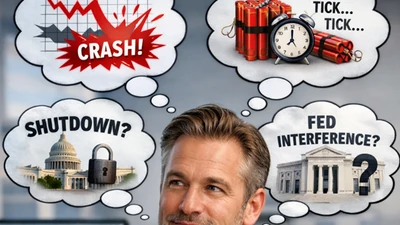Another day, another Wall Street tantrum. This time, it’s tariffs. The market dips a few hundred points and suddenly the usual talking heads on cable news declare economic Armageddon. But before we light our hair on fire, let’s take a step back and recognize what’s really happening here: America is finally fighting back after decades of getting steamrolled on trade. And the stock market doesn’t like it—because for once, Main Street is being prioritized over global profits.
That’s not a bug. That’s the whole point.
For decades, so-called "free trade" agreements have benefited multinational corporations and foreign powers while gutting American manufacturing and depressing wages. China, in particular, has played the global system like a fiddle—manipulating its currency, dumping steel, and stealing our intellectual property without consequence. Tariffs are a long-overdue course correction. They’re not a sign of chaos; they’re a signal that America is reasserting its economic sovereignty.
Yes, the market has reacted. And yes, some investors are nervous. But conservatives understand something that Wall Street often forgets: the stock market is not the economy. Short-term volatility is a normal reaction to bold policy shifts. In the long run, a strong industrial base, fair trade, and empowered American workers will lead to a more stable and self-reliant economy. That’s worth a few jittery trading days.
If anything, this is a buying opportunity. Investors who believe in American strength should be looking at U.S.-based manufacturers, infrastructure projects, and companies that don't rely on cheap labor halfway around the globe. These are the businesses that will thrive under a rebalanced trade system—and it’s time we support them.
Let’s also be honest about who’s complaining the loudest. The corporate media, globalist elites, and career bureaucrats in D.C. have always preferred managed decline to assertive leadership. They loved NAFTA, praised China’s entrance into the WTO, and cheered every deal that hollowed out the heartland. Now that there’s a president—or any leader—willing to stand up and say "enough," they clutch their pearls over a 2% dip in the Dow.
Conservatives shouldn’t fall for it.
Instead, we should double down on what we know works: pro-growth tax policies, deregulation, energy independence, and yes, strategic tariffs that protect American jobs. This is about building an economy that’s resilient—not just profitable on paper. It's about putting American workers first, not the quarterly earnings reports of multinational corporations.
Reagan once said, “If not us, who? If not now, when?” That mindset should guide us now. The short-term discomfort we’re seeing is a sign that we’re finally doing the hard but necessary work of reclaiming control over our economic destiny.
This isn’t market chaos—it’s market correction. And it’s long overdue.
Merchant Cash Advances: The Financial Lifeline for Conservative American Companies
In the fast-paced world of business, access to capital is everything. Whether it’s stocking up on inventory, making payroll, or launching a marketing campaign, companies need money—and they need it now. That’s where the Merchant Cash Advance (MCA) steps in like a financial first responder, offering a lifeline to small and mid-sized businesses that may not have the luxury of waiting weeks (or months) for traditional bank loans.
But MCAs aren't just any financial product—they've become especially important to Conservative American companies, many of which prioritize independence, lean operations, and rapid growth without red tape. Let’s break down the MCA industry, how it works, and why it resonates so strongly with the values of conservative entrepreneurs.
What Is a Merchant Cash Advance?
At its core, a merchant cash advance isn’t a loan—it's an advance against a business's future revenue, typically credit card sales. Here's how it works:
- A company receives a lump sum of cash up front.
- Instead of monthly loan payments, the business agrees to repay the advance as a fixed percentage of daily or weekly sales.
- The repayment continues until the full amount (plus a fee or “factor rate”) is paid back.










